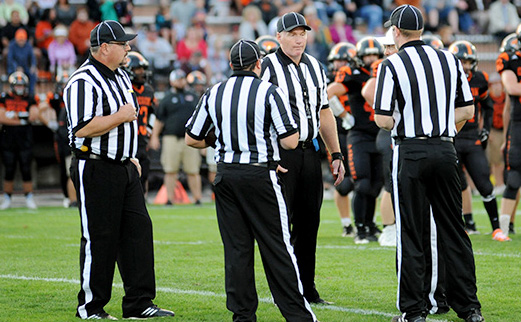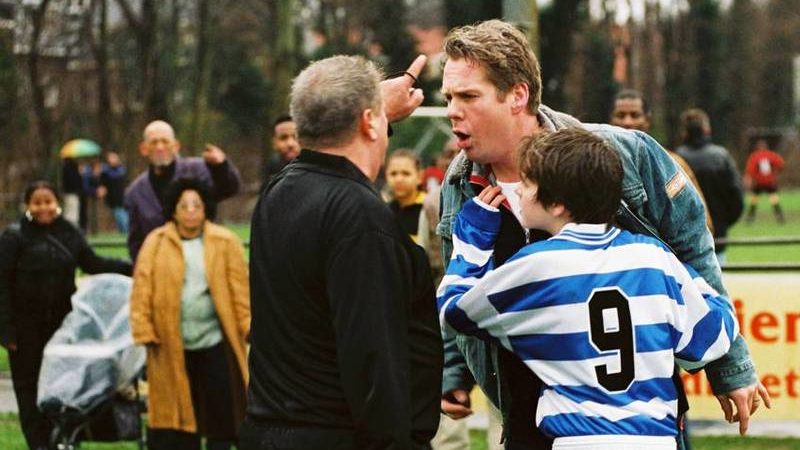Baseball Coach Says He Was Fired Because He’s Not Asian
http://www.twincities.com/sports/ci_20158325/st-paul-school-district-investigates-after-coach-says
The St. Paul school district is investigating a baseball coach’s allegation his East Side school set out to replace him with a coach of Asian descent in a bid to recruit more Asian-American students.Michael Grover, the freshman baseball coach at Johnson Senior High, posted a biting note on his Facebook page after he and his assistant coach lost their jobs last week.
The post by Grover, who is white, spurred calls to the school and an investigation by the district’s human resources department.
Athletics director Jeff Plaschko, a two-decade Johnson veteran, is on paid leave just as the spring season gets under way. Plaschko said he was advised by the district not to comment during the investigation.
“Under no circumstances do we base hiring or firing on a person’s racial or ethnic background,” the district said in a statement. “The district has a very clear policy on this, and we adhere to it.”
Grover acknowledged that after two strong seasons, his team lost all but two games last spring, and its roster has shrunk in recent years. But he said his race came up when Plaschko explained the reasons for his replacement days before spring began.
Several veterans of Minnesota high school athletics said they find it implausible that an athletics director would make such a blunt statement in firing a coach. Besides violating district policy, basing such a decision on race is illegal.
The district’s investigation plays out against a trying backdrop for athletics at urban schools such as Johnson: Those schools have struggled to keep once-successful teams going in increasingly mobile and diverse communities, where fewer students have grown up playing the state’s favorite pastimes.
At Johnson, where almost half of the students are of Asian descent, the freshman baseball team featured no Asian players last season.
Grover said Plaschko, who is the varsity baseball coach, gave him high marks for warding off defections among his dozen players during a tough season last year. Grover spoke highly of the athletic director but said he was disappointed in the last-minute decision to fire him and his assistant, coach Greg Pogreba.
“He said he wants to replace us with Asian coaches because he wants more Hmong players on the team,” Grover said.
Pogreba declined to comment.
District spokeswoman Toya Stewart Downey said Johnson Principal Astein Osei found out about Grover’s allegations Friday and contacted the district’s human resources department, which launched a formal personnel investigation.
Grover’s and Pogreba’s replacements could not be verified, officials said, because the district is on spring break.
Under the district’s media rules, Osei referred questions to the district office.
Meanwhile, Grover’s Facebook note triggered about 90 comments, including many from Johnson graduates and parents lamenting his departure. A few, while supportive of him, questioned if he could have done more to ensure his team better reflected the school’s demographics.
Jim Baker, a past president of both the state’s high school coaches and athletic directors associations, said he found it hard to believe an athletic director would bring up race to explain a coach’s firing.
“The usual reason given is, ’We’ve chosen to go in a new direction,’ ” concurred John Erickson, the head of the Minnesota State High School Coaches Association.
Both said coaching changes over performance issues usually occur at the end of a season – or, in any case, well before the start of a new season.
“You don’t just pull the plug the week before practice starts,” Baker said.
Ron Snaza, Johnson’s softball coach, said he is not familiar with Grover’s situation. But he said it’s important to keep sight of the challenges Johnson’s athletics staff face. High mobility and poverty – more than 80 percent of students qualify for free or reduced-price lunch – can trip up teams, even as they make sports a powerful connection to school.
Many of the school’s minority students are new to sports such as softball, baseball and hockey, and sometimes to the concept of playing for a high school team. That can make for uneven standoffs with suburban teams.
“At Johnson and at many other schools in the city, our traditional sports – the minority kids don’t play them,” he said. “They haven’t grown up with them.”
When Snaza, a Johnson graduate and longtime Hill-Murray High School coach, took over Johnson’s team last year, he pledged to reach out to more minority students, including through a summer feeder program at East Side rec centers.
His efforts are starting to pay off, he said, but “to be competitive again, it’s going to take a long time.”







